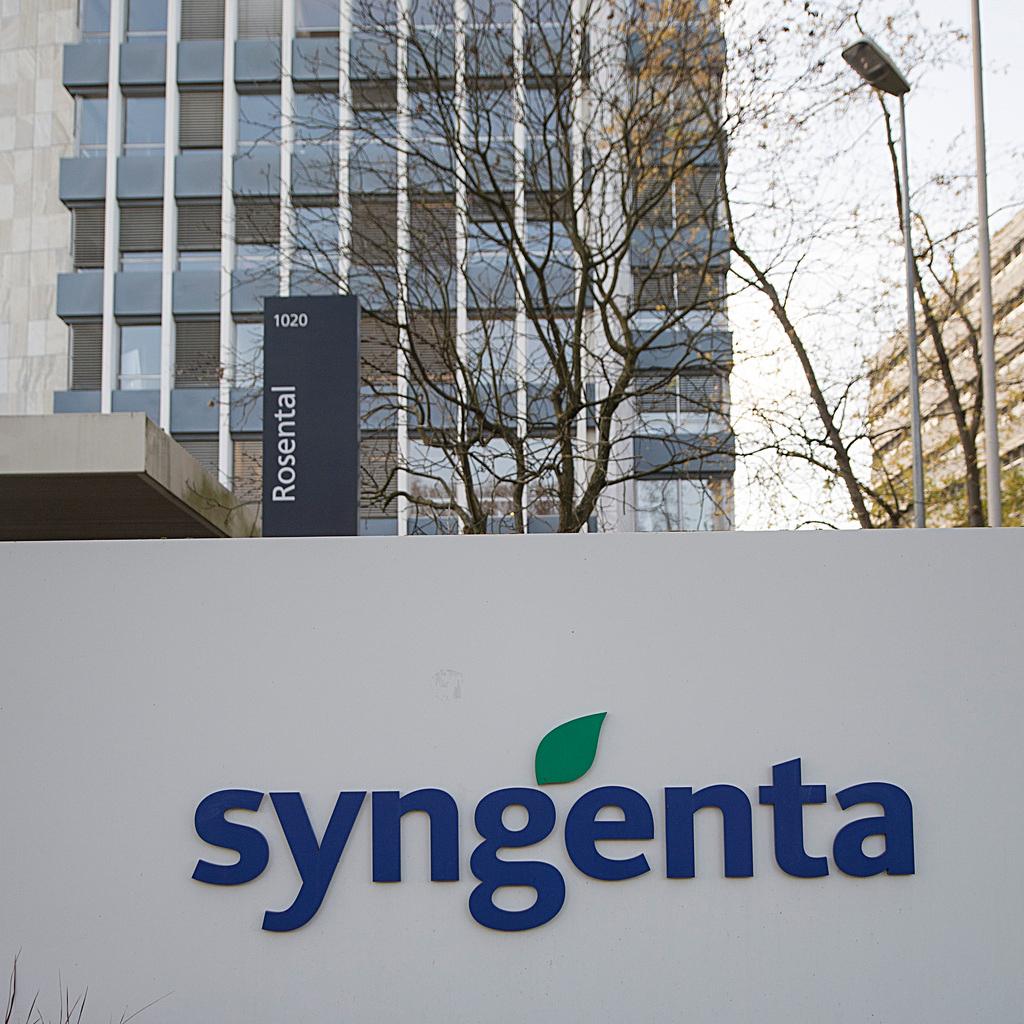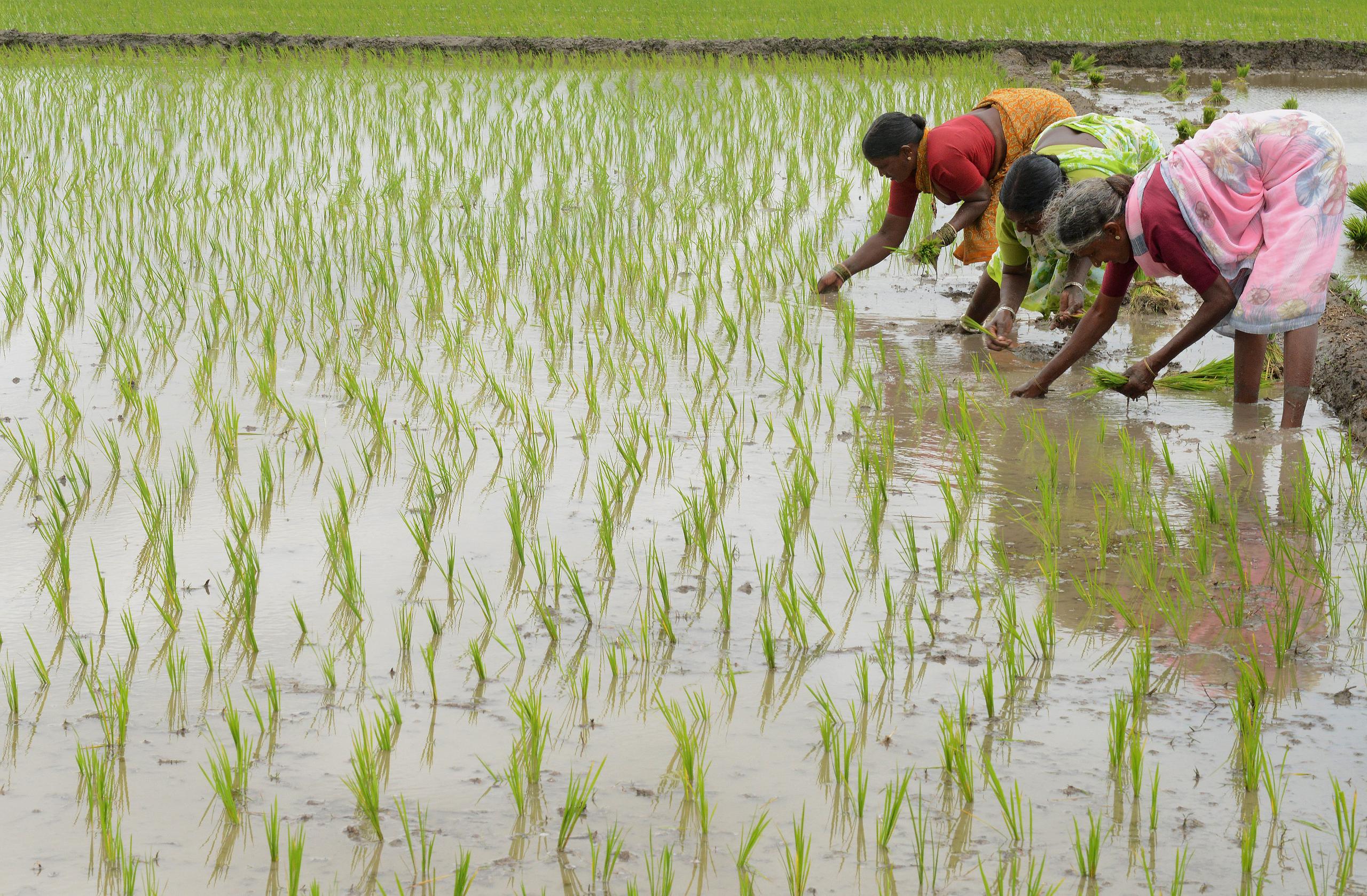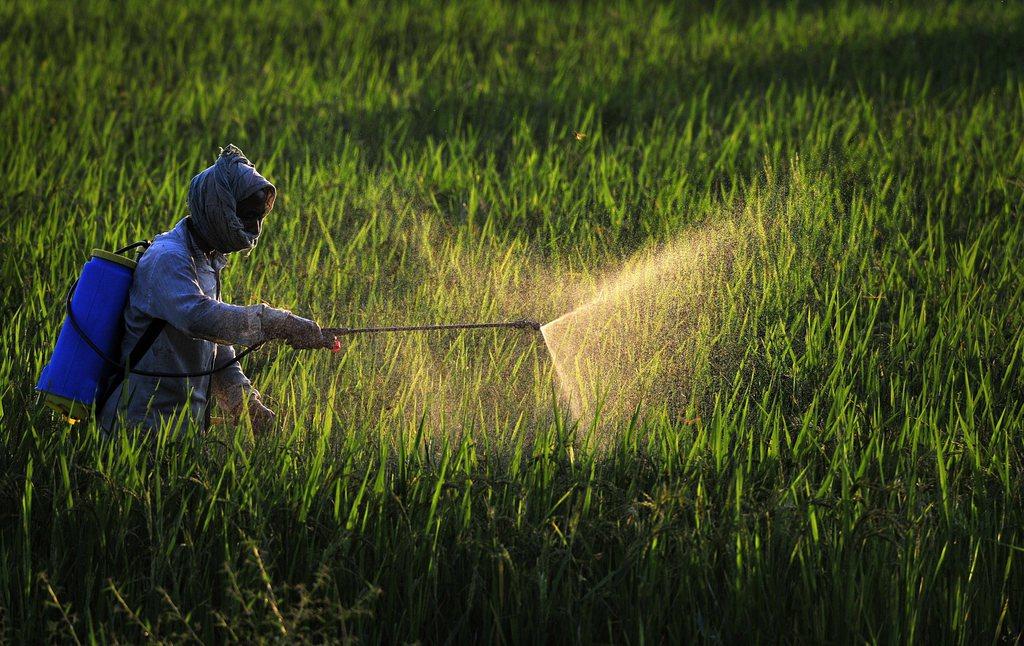Syngenta’s herbicide could violate Indian laws

A group of non-profits, including Swiss-based Berne Declaration, have accused Syngenta of breaking Indian laws on the use of a hazardous herbicide called paraquat, potentially putting farmers in harm’s way. They want the Swiss pesticide giant to withdraw the pesticide globally.
In a reportExternal link published on Thursday, the group claims that Syngenta recommends the use of paraquat for crops such as sugarcane and sunflower, as well as aquatic weed control. These plants do not figure in the list of nine crops for which paraquat use has been approved by the Central Insecticide Board & Registration Committee. This would mean that the company is in violation of the Indian Insecticides Act.
“Paraquat is a flagship product for Syngenta and the company’s Gramoxone brandExternal link is well known in India,” C. Jayakumar of Pesticide Action Network, told swissinfo.ch.
Paraquat is banned in Switzerland and the European Union, as well as some African and Asian countries. Improper use can cause headaches, vomiting, burning sensations, breathing difficulty, and muscle pain.
The group documented the use of paraquat in 11 study areas across six Indian states and found that the herbicide was not handled in a safe manner. It was sold in plastic bags and mixed with other ingredients like salt and shampoo, which is not recommended.
“Syngenta do not make much money from selling paraquat as it makes up only 5% of total herbicide use in India,” said Jayakumar. “When it is not a big earner and creates so many problems Syngenta would be better served by another product that does not cause so much controversy.”
According to François Meienberg of the Berne Declaration, Syngenta is also in violation of the International Code of Conduct on Pesticide Management.
“Herbicides as hazardous as paraquat should only be sold where protective equipment is used,” he said. “Therefore Syngenta’s responsibility goes beyond just complying with laws.”
He also added that while the herbicide only occupies a small share of the Indian pesticide market, Syngenta sells more than 50% of the world’s paraquat.
Syngenta was not ready to comment on the paraquat report.
“This is the first time we’ve seen the report and it’s not appropriate for us to comment on the specific claim until we’ve properly reviewed it,” a Syngenta spokesperson told swissinfo.ch. “That said, Syngenta complies with the regulations of each country we operate in and makes every effort to ensure there are no unapproved or inappropriate uses of our products.”
An initiative to hold companies accountable
Meienberg thinks that Syngenta’s paraquat violations in India serve as a good model to illustrate the possibilities of the “Responsible Business Initiative” that was launched by a broad coalition of 66 civil society groups on Tuesday.
The initiative seeks to ensure that all Swiss companies carry out proper human rights and environmental due diligence, integrating these aspects into their business practices.
“Syngenta is a very good case because the first part of the initiative addresses the issue of due diligence, which means to ascertain the impact of their products,” said Meienberg. “Our analysis is that Syngenta has not fulfilled its obligations of due diligence for this herbicide.”
He went on to say that hypothetically under the initiative, Indian farmers could file a case against Syngenta in Swiss courts for damage caused by using the herbicide. It would then be Syngenta’s task to prove that it had performed adequate due diligence to ensure that its product will not cause harm to Indian farmers.
Data transparency
On Thursday Syngenta published a unrelated range of data in what could be seen as an attempt to make their work more transparent. The data can be used, searched and shared online. It includes “2014 baseline information for agricultural efficiency indicators”, which has been taken from 3,600 farms in 41 countries across the world.
The company is working with the Open Data Institute, an independent body that aims to make sure data can be used openly, and to share knowledge.

In compliance with the JTI standards
More: SWI swissinfo.ch certified by the Journalism Trust Initiative




You can find an overview of ongoing debates with our journalists here. Please join us!
If you want to start a conversation about a topic raised in this article or want to report factual errors, email us at english@swissinfo.ch.